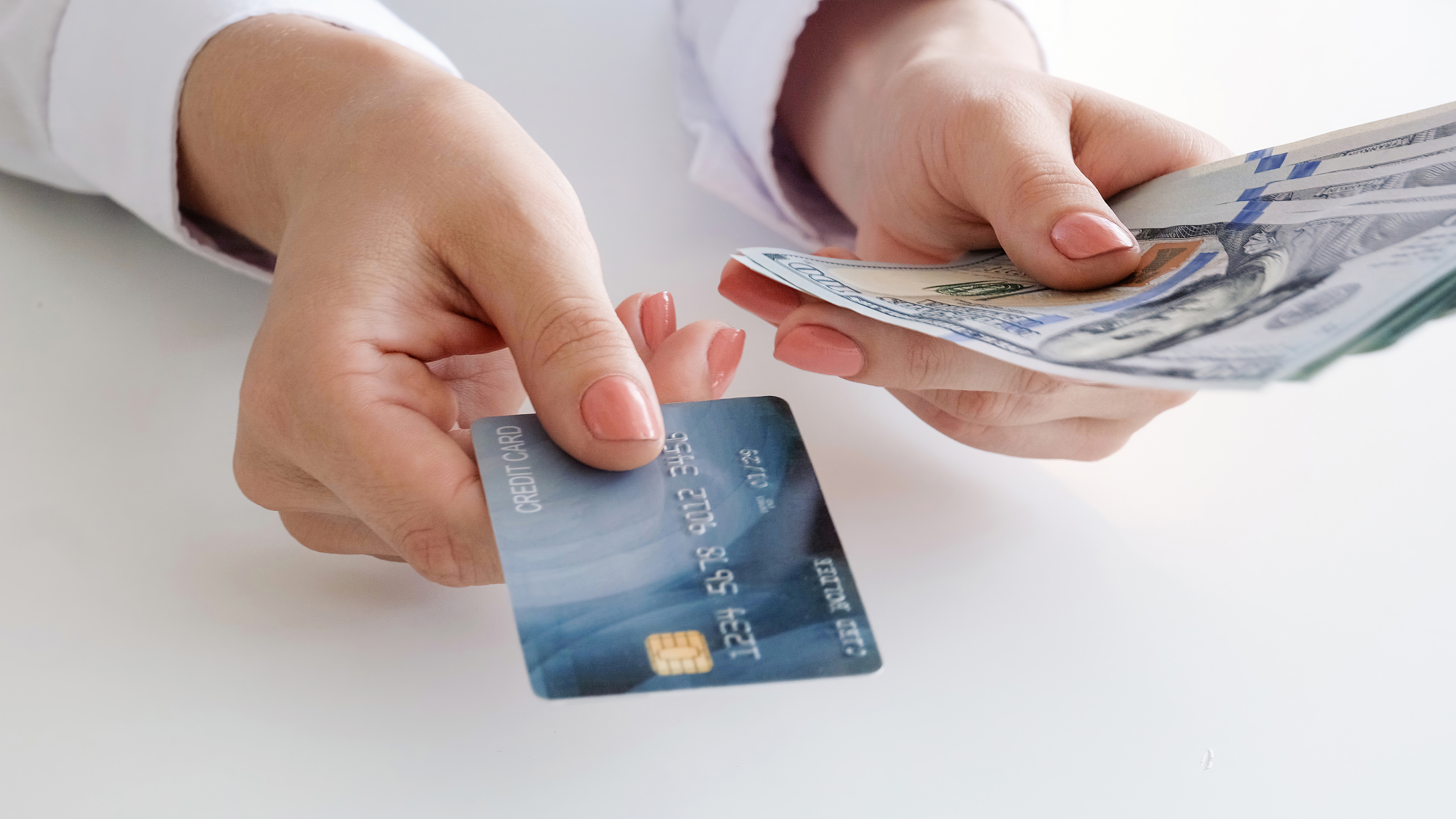Capital One/Discover: What's In Their Wallet For You?
Push back on Capital One's planned merger with Discover is growing with one group of consumer advocates calling for a public hearing.


Profit and prosper with the best of Kiplinger's advice on investing, taxes, retirement, personal finance and much more. Delivered daily. Enter your email in the box and click Sign Me Up.
You are now subscribed
Your newsletter sign-up was successful
Want to add more newsletters?

Delivered daily
Kiplinger Today
Profit and prosper with the best of Kiplinger's advice on investing, taxes, retirement, personal finance and much more delivered daily. Smart money moves start here.

Sent five days a week
Kiplinger A Step Ahead
Get practical help to make better financial decisions in your everyday life, from spending to savings on top deals.

Delivered daily
Kiplinger Closing Bell
Get today's biggest financial and investing headlines delivered to your inbox every day the U.S. stock market is open.

Sent twice a week
Kiplinger Adviser Intel
Financial pros across the country share best practices and fresh tactics to preserve and grow your wealth.

Delivered weekly
Kiplinger Tax Tips
Trim your federal and state tax bills with practical tax-planning and tax-cutting strategies.

Sent twice a week
Kiplinger Retirement Tips
Your twice-a-week guide to planning and enjoying a financially secure and richly rewarding retirement

Sent bimonthly.
Kiplinger Adviser Angle
Insights for advisers, wealth managers and other financial professionals.

Sent twice a week
Kiplinger Investing Weekly
Your twice-a-week roundup of promising stocks, funds, companies and industries you should consider, ones you should avoid, and why.

Sent weekly for six weeks
Kiplinger Invest for Retirement
Your step-by-step six-part series on how to invest for retirement, from devising a successful strategy to exactly which investments to choose.
If two of the country’s largest credit card issuing banks merge, will the combination create a behemoth that limits consumer choice and pushes up card rates? Will it benefit the public or just the new bank?
Those are among the concerns of critics of Capital One’s $35.3 billion planned acquisition of Discover Bank, a deal that has continued to face considerable headwinds since it was announced last month.
The latest group to question the proposed merger is a coalition of 30 community, consumer, civil rights and public interest groups. In a March 21 letter to the federal agencies reviewing the deal, the group said the merger between the bank and payment processing network "presents unique anticompetitive considerations and potentially negative impacts on depositors and customers," who should have the chance to voice their concern.
From just $107.88 $24.99 for Kiplinger Personal Finance
Become a smarter, better informed investor. Subscribe from just $107.88 $24.99, plus get up to 4 Special Issues

Sign up for Kiplinger’s Free Newsletters
Profit and prosper with the best of expert advice on investing, taxes, retirement, personal finance and more - straight to your e-mail.
Profit and prosper with the best of expert advice - straight to your e-mail.
The group — which includes the Consumer Federation of America, Consumer Reports, and the National Community Reinvestment Coalition (NCRC) — urged that a public hearing be held on the matter. It called on the Federal Reserve, the Office of the Comptroller of the Currency (OCC) and the Department of Justice (DOJ) to move quickly to provide a transparent review with ample opportunity for the public to engage and comment.
In a March 21 Reuters report, Capital One appears to be trying to quell at least some of those fears.
Per the report, which cites people familiar with the matter, the bank said the merger would not be problematic for credit card competition because, combined, the companies account for only about 13% of credit card purchasing volume, a metric that the bank likens to market share, according to the report.
The bank, in the report, also makes the point that the merger with Discover — a card issuer as well as payment network operator — would allow it to better compete against network giants Visa and Mastercard.
Capital One and Discover did not return calls for comment.
David Robertson, publisher of The Nilson Report, told Kiplinger last month that combining the two banks will have no impact on consumers but that, "in time, merchants could benefit because the new company could offer more competition to Visa and Mastercard.”
A network-level disruption is the "the big play that's going on here," according to a recent report by Lulu Wang, assistant professor of finance at the Kellogg School of Management. The disruption could come about, for example, if Capital One decides after the merger to move some of its card business from the Visa and Mastercard networks, to Discover's proprietary network, he said.
Wang noted that more consumers are using credit cards over cash these days and that the two banks command less than 20% of consumer card balances and about 10% of card spending. As far as consumer benefits, the deal may allow Capital One to issue rewards debit cards through the Discover network, products that Visa and Mastercard do not offer, he said in the report.
The power to 'extort' consumers — Sen. Hawley
The banks expect the merger to close in late 2024 or early 2025, pending shareholder and regulatory approvals. But whether it is actually completed remains an open question until, and if, it receives those approvals.
Soon after it was announced, several lawmakers raised red flags, objecting to what they said would be a combination that consolidates market power and harms consumers by pushing up credit card rates.
Sen. Josh Hawley (R-MO), who wrote to DOJ antitrust chief Jonathan Kanter last month, is among those calling for the deal to be blocked.
"This is destructive corporate consolidation at its starkest. If consummated, this merger will create a new juggernaut in the credit card market, with unprecedented powers to extort American consumers," Hawley said in the letter.
The day after the transaction was announced, Sen. Elizabeth Warren (D-MA) said in a post on X, the platform formerly known as Twitter, that it "threatens our financial stability, reduces competition, and would increase fees and credit costs for American families.”
Days later, Warren led a group of other Democratic lawmakers in calling for the Fed and OCC to block the merger. Combining the banks would consolidate the credit card market, create the nation's sixth-largest bank and limit customer choice, the group said in a letter.
Credit card rates at large banks are higher than those at small banks, according to a study last month from the Consumer Financial Protection Bureau (CFPB), which regularly surveys 150 credit card issuers nationwide. The study found that the 25 largest card issuers charge interest rates that were 10% higher on average than interest rates charged by smaller financial institutions.
A total of 15 issuers — including Capital One (fourth on the list) — have at least one product that has a maximum purchase APR over 30%, according to the CFPB study. The agency said it is working on improving competition in the credit card market.
RELATED CONTENT
Profit and prosper with the best of Kiplinger's advice on investing, taxes, retirement, personal finance and much more. Delivered daily. Enter your email in the box and click Sign Me Up.

Keerthi Vedantam is a reporter covering finance, tech and science. She previously covered biotech and health at Crunchbase News and enterprise technology at Business Insider.
- Joey SolitroContributor
- Esther D’AmicoSenior News Editor
-
 Dow Adds 1,206 Points to Top 50,000: Stock Market Today
Dow Adds 1,206 Points to Top 50,000: Stock Market TodayThe S&P 500 and Nasdaq also had strong finishes to a volatile week, with beaten-down tech stocks outperforming.
-
 Ask the Tax Editor: Federal Income Tax Deductions
Ask the Tax Editor: Federal Income Tax DeductionsAsk the Editor In this week's Ask the Editor Q&A, Joy Taylor answers questions on federal income tax deductions
-
 States With No-Fault Car Insurance Laws (and How No-Fault Car Insurance Works)
States With No-Fault Car Insurance Laws (and How No-Fault Car Insurance Works)A breakdown of the confusing rules around no-fault car insurance in every state where it exists.
-
 No-Fault Car Insurance States and What Drivers Need to Know
No-Fault Car Insurance States and What Drivers Need to KnowA breakdown of the confusing rules around no-fault car insurance in every state where it exists.
-
 7 Frugal Habits to Keep Even When You're Rich
7 Frugal Habits to Keep Even When You're RichSome frugal habits are worth it, no matter what tax bracket you're in.
-
 How Much It Costs to Host a Super Bowl Party in 2026
How Much It Costs to Host a Super Bowl Party in 2026Hosting a Super Bowl party in 2026 could cost you. Here's a breakdown of food, drink and entertainment costs — plus ways to save.
-
 3 Reasons to Use a 5-Year CD As You Approach Retirement
3 Reasons to Use a 5-Year CD As You Approach RetirementA five-year CD can help you reach other milestones as you approach retirement.
-
 How to Watch the 2026 Winter Olympics Without Overpaying
How to Watch the 2026 Winter Olympics Without OverpayingHere’s how to stream the 2026 Winter Olympics live, including low-cost viewing options, Peacock access and ways to catch your favorite athletes and events from anywhere.
-
 Here’s How to Stream the Super Bowl for Less
Here’s How to Stream the Super Bowl for LessWe'll show you the least expensive ways to stream football's biggest event.
-
 The Cost of Leaving Your Money in a Low-Rate Account
The Cost of Leaving Your Money in a Low-Rate AccountWhy parking your cash in low-yield accounts could be costing you, and smarter alternatives that preserve liquidity while boosting returns.
-
 This Is How You Can Land a Job You'll Love
This Is How You Can Land a Job You'll Love"Work How You Are Wired" leads job seekers on a journey of self-discovery that could help them snag the job of their dreams.